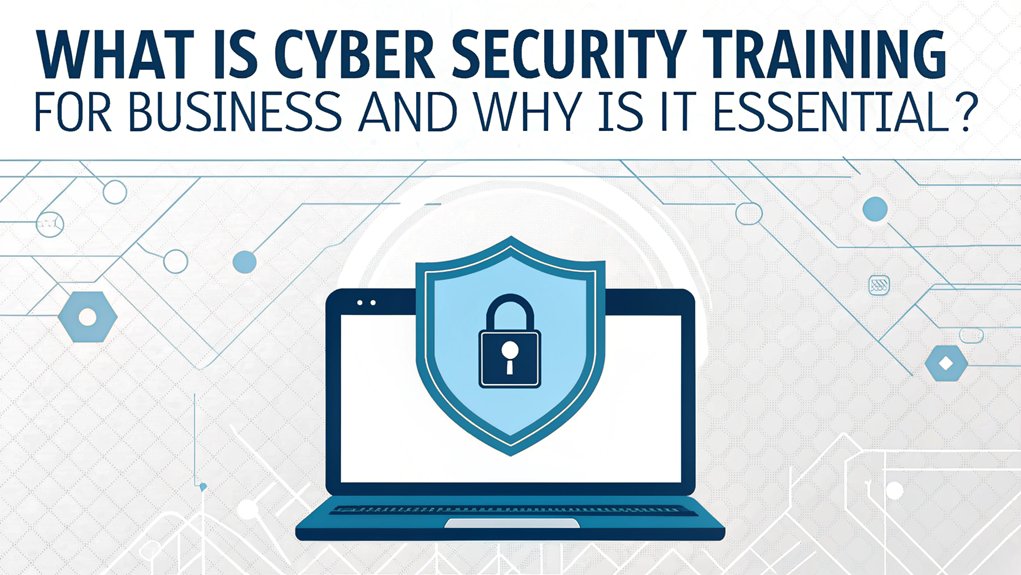The leaked password phenomenon has become a pressing concern in the realm of cybersecurity, impacting individuals and organizations alike. These compromised credentials often surface on dark web forums and data breach websites, where hackers trade stolen information for nefarious purposes. The significance of leaked passwords lies in their potential to grant unauthorized access to sensitive accounts, leading to identity theft, financial loss, and reputational damage. For users, understanding the risks associated with leaked passwords is crucial, as it underscores the importance of implementing robust security measures, such as unique, complex passwords and two-factor authentication, to safeguard their digital identities.
Key Highlights
- Cyber security training educates employees about online threats and protective measures, reducing security incidents by up to 70% through proper awareness.
- Training ensures compliance with data protection regulations, helping businesses avoid costly penalties and legal consequences.
- Customized programs address specific job roles and responsibilities, providing relevant security knowledge for different positions within the organization.
- Interactive learning methods like games and simulations enhance employee engagement and retention of critical security practices.
- Regular training creates a strong security culture, with employees acting as the first line of defense against cyber threats.
Understanding the Core Elements of Cyber Security Training
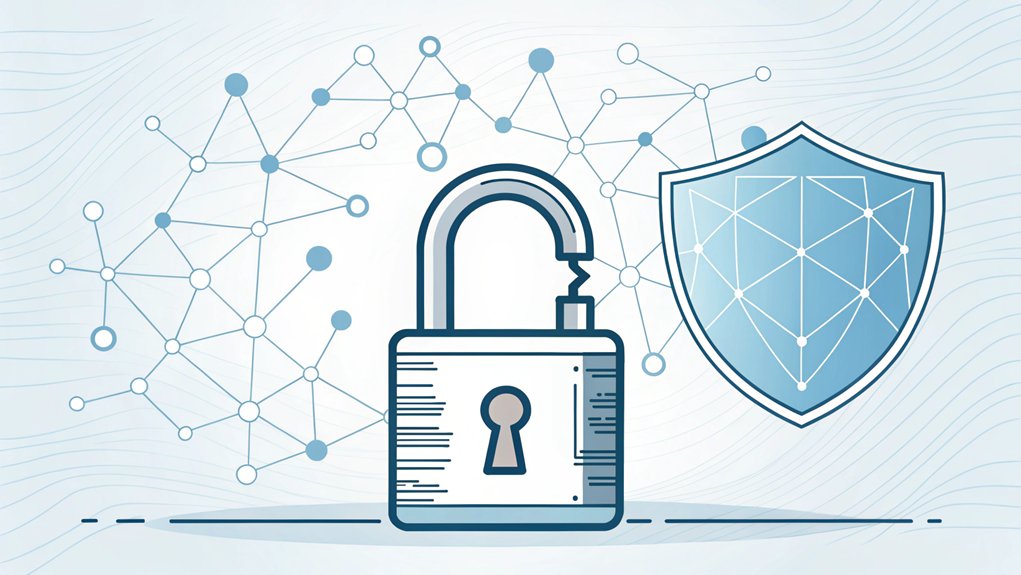
Four key building blocks make cyber security training super important for keeping businesses safe! Think of it like building the perfect sandcastle – you need all the right pieces to make it strong.
I'll tell you a secret: the best training is like getting a special superhero costume made just for you! It fits perfectly and helps you fight the exact bad guys you might meet. Different jobs need different powers, just like how a doctor and a banker face different challenges.
You know how your teacher gives you fun games to learn math? That's exactly what we do in cyber security! We use cool games, videos, and quizzes to practice spotting sneaky tricks online. Non-compliance penalties can cost businesses millions in fines if they don't follow the rules.
It's like being a detective, but instead of looking for clues with a magnifying glass, you're hunting for things that could harm computers!
Key Benefits of Employee Cyber Security Education
When businesses teach their employees about cyber security, amazing things happen! It's like giving everyone a superhero shield to protect their computer secrets.
I bet you've played "keep away" on the playground – cyber security training is similar, but instead of keeping a ball away, we're keeping bad guys away from important information!
Did you know that when employees learn about cyber security, problems drop by up to 70%? That's like getting an A+ on your math test!
Plus, just like learning the rules of your favorite board game, cyber security training helps everyone follow special internet safety rules.
The best part? When employees know how to stay safe online, they feel more confident – just like when you finally learn to ride a bike without training wheels!
Research shows that relying on software protection alone isn't enough to keep companies safe from cyber threats.
The Human Factor in Data Security
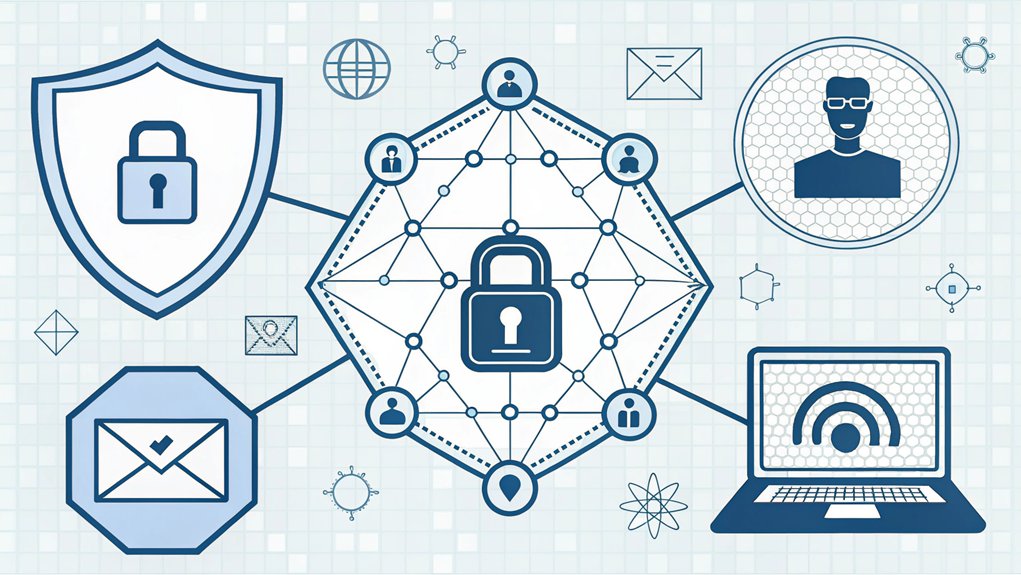
Think of cyber security like keeping your favorite toy safe. You wouldn't give your house key to a stranger, right? That's why we need to learn how to protect our computer stuff, just like how you protect your special belongings at home! Enforcing multi-factor authentication (MFA) can add an extra layer of security to help prevent unauthorized access to our accounts.
Building a Robust Security Culture Through Training
A super-strong security culture is like building the world's best pillow fort – everyone needs to work together and know the rules!
Just like how you learn new games on the playground, everyone at work needs to keep learning about staying safe online. Implementing MFA enrollment can greatly enhance our defense against cyber threats.
Think of it as being a safety superhero! I'll teach everyone special moves to spot bad guys (we call them cyber threats) and protect our digital treasure chest of information.
We do fun training sessions – like playing "Spot the Fake Email" or "Password Power-Up."
The best part? When you do a great job keeping things safe, you get rewards! It's like earning stickers on your classroom chart. Having security ambassadors in each team helps spread the safety message in a fun way!
When everyone works together, we create an awesome security team that keeps our computer kingdom safe and sound!
Essential Components of an Effective Training Program
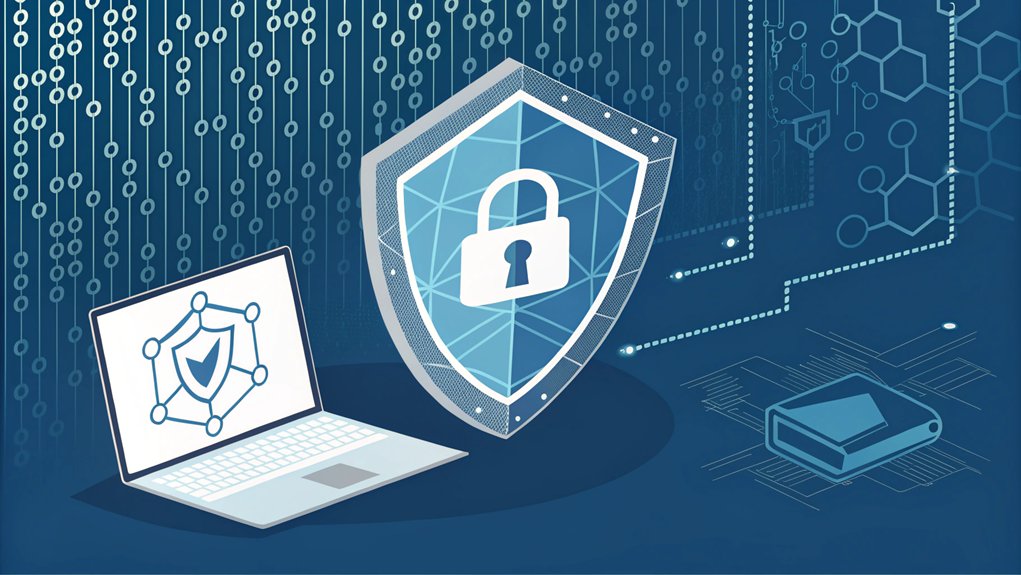
Building a super-strong training program is like packing your lunchbox with all the best snacks!
I'll show you what makes cybersecurity training super fun and effective, just like choosing the perfect ingredients for a sandwich. Did you know that 94% of those sneaky computer viruses come through email? That's like getting junk mail in your mailbox! With 70% of breaches involving human error, training employees is more crucial than ever.
Here are some things that'll make your training program as exciting as recess:
- Think of passwords like secret clubhouse codes – they need to be unique and special
- Picture email safety like crossing the street – always look both ways before clicking
- Imagine regular practice sessions as fun pop quizzes that keep your brain sharp
Measuring ROI and Impact of Security Training
Just like counting how many cookies you get for your allowance money, measuring the success of cybersecurity training is super important! When companies invest in teaching their employees about cyber safety, they want to know if it's worth it.
Think of it like this: if you spend $5 on lemonade supplies but make $20 selling drinks, that's a great return! Companies look at security training the same way. They check how much money they save by stopping cyber bad guys from stealing their stuff.
Want to know something cool? Training employees about cyber safety helps companies save millions of dollars! It's like having a super-strong shield that protects their important secrets. Organizations that lack proper training end up paying about $1.75 million more when cyber attacks happen. Additionally, implementing multi-factor authentication can significantly enhance security and further reduce potential losses from cyber threats.
Plus, employees who learn these skills stay at their jobs longer – just like how you stick with your favorite video game when you're really good at it!
Regulatory Compliance and Legal Requirements
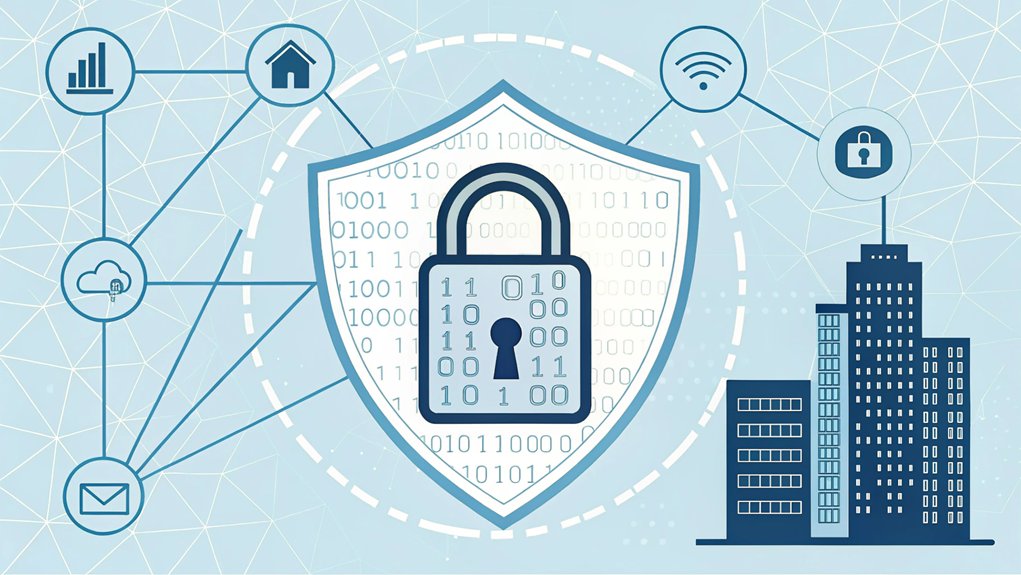
Rules help keep everyone safe, like how we follow traffic lights when crossing the street!
When it comes to protecting important computer information, there are special rules called "regulations" that businesses must follow. Think of these rules as a safety helmet when you're riding your bike – they protect you from getting hurt! Companies who don't follow the rules can face serious problems since privacy violations often result from cybersecurity incidents.
- Just like how you need to memorize multiplication tables, companies need to learn cybersecurity rules through regular training.
- Imagine if someone left the cookie jar open – that's like not protecting sensitive information!
- It's like playing "Red Light, Green Light" – everyone needs to know when to stop and when to go with data.
I bet you follow rules at school every day. Companies need to do the same with their computer systems, or they might get in big trouble – just like getting sent to the principal's office!
Common Cyber Threats and Prevention Strategies
Sneaky computer tricks are everywhere on the internet – just like hide and seek, but not as fun! Did you know there are digital bullies called malware that try to mess up your computer? It's like when someone puts a "kick me" sign on your back, but for computers!
I'll teach you how to be a cyber superhero! First, keep your computer's protective shield (that's what we call antivirus software) strong and updated. Think of it as putting on sunscreen before playing outside.
Next, watch out for tricky emails that pretend to be your friends – just like when someone tries to trick you into trading your yummy sandwich for a mushy banana!
Finally, use super-strong passwords that mix letters, numbers, and symbols. It's like creating a secret code that only you know! Businesses need to remember that proper staff training is critical for stopping cyber attacks.
Implementing Successful Training Programs
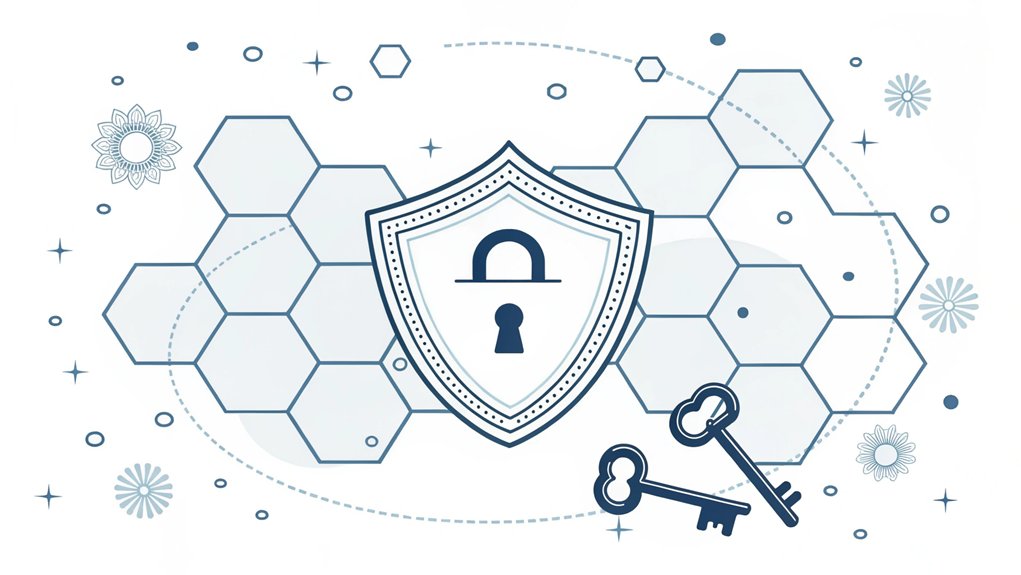
When it comes to learning about computer safety, we need a super fun training plan – like having a game plan for the most awesome playground adventure ever!
I'll help you make learning about cyber security as exciting as your favorite video game. We'll mix up different activities to keep everyone interested and having fun while learning important stuff.
Here are some ways we make training super cool:
- Playing detective games to spot tricky email messages
- Creating secret codes and passwords like a spy master
- Using special computer games to practice staying safe online
You know what's really neat? Just like you practice sports to get better, we practice computer safety too! Real-world examples help us understand cyber threats better.
I make sure everyone learns at their own speed, and we celebrate when they master new skills – kind of like leveling up in a game!
Best Practices for Ongoing Security Education
Staying safe with computers isn't a one-time thing – it's like keeping your superhero powers charged up! Just like you practice your basketball shots or piano playing, we need to keep learning about computer safety too.
I love making security training fun! Have you ever played a computer game that teaches you while you play? That's what we do – we mix cool activities, quizzes, and even pretend scenarios to help you learn. It's like being a detective searching for clues!
Want to know what makes training super effective? We customize it just for you, like picking toppings for your pizza. Some people need to learn about passwords, while others learn about keeping important files safe. Learning how to spot phishing attacks helps protect everyone from bad guys trying to trick us.
And guess what? We always check to see how well you're learning – it's like getting stars in your favorite game!
Frequently Asked Questions
How Long Does It Take to Complete Basic Cybersecurity Training?
I'll tell you how long basic cybersecurity training takes!
It's like learning a new game – everyone picks it up at their own speed. Usually, you'll need about 5-10 days if you're taking in-person classes.
But guess what? If you're learning online at your own pace, you might finish in just 11 hours or spread it out over a few months.
Pretty cool, right?
Can Small Businesses Afford Professional Cybersecurity Training Services?
Yes, I believe small businesses can afford cybersecurity training!
I've found that costs can start as low as $0.45 per employee each month – that's less than a candy bar!
You've got lots of budget-friendly options, like online courses and free government resources.
Plus, many providers offer sweet discounts when you sign up more employees.
Think of it like buying in bulk at the grocery store!
What Certifications Should Cybersecurity Trainers Have?
I'd recommend looking for trainers with at least one major certification like CISA, CISM, CASP+, or CEH.
These are like special badges that show they really know their stuff! Think of it like having a black belt in karate – it means they've practiced a lot.
I'd pick someone with the CISM certification first because it focuses on teaching security skills to others.
Want to know something cool? These experts have to keep learning new tricks every year!
How Often Should Businesses Update Their Cybersecurity Training Materials?
I'll tell you my secret recipe for updating cybersecurity training!
I like to check and refresh my materials every three months – just like changing your favorite video game character's outfit!
For super important stuff, I do monthly updates, kind of like getting a new level pack. Isn't that cool?
When there's a new cyber threat (that's like a tricky new game boss), I update right away!
Should Remote Workers Receive Different Cybersecurity Training Than Office Employees?
Remote workers and office staff should get different training, and I'll tell you why!
Think of it like having two different rules – one for playing inside and one for playing outside.
Remote workers need extra lessons about keeping their home internet safe and protecting personal devices.
They're like solo superheroes who can't just run to IT for help, while office workers have their work's security blanket right there!
The Bottom Line
As we delve deeper into the realm of cyber security, it becomes clear that safeguarding your business extends beyond just training. One crucial aspect of your defense strategy lies in password security and management. Weak or reused passwords can leave your organization exposed to significant threats. To fortify your defenses, consider implementing a robust password management system. This not only streamlines the process of creating and storing strong passwords but also enhances overall security.
To get started on this vital journey, I encourage you to check out LogMeOnce. They offer a comprehensive solution for password and passkey management that can significantly bolster your security posture. Sign up for a free account today and take the first step towards a more secure digital environment for your business. Visit LogMeOnce to learn more and get started!

Mark, armed with a Bachelor’s degree in Computer Science, is a dynamic force in our digital marketing team. His profound understanding of technology, combined with his expertise in various facets of digital marketing, writing skills makes him a unique and valuable asset in the ever-evolving digital landscape.





 Password Manager
Password Manager
 Identity Theft Protection
Identity Theft Protection

 Team / Business
Team / Business
 Enterprise
Enterprise
 MSP
MSP
